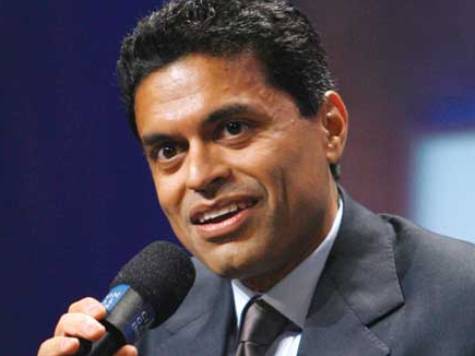Now that his plagiarism tribulations are over, TIME and CNN correspondent Fareed Zakaria has made a few new promises in order to prevent such a mess in the future. He plans to scale back some of his workload.
One of the accusations made against Zakaria was that he was employing interns to actually write his vast volume of works. It was said that Zakaria must have merely affixed his name to the work of underlings and published them as his own. He must have a ghostwriter and this was the main cause of the plagiarism. But Zakaria refutes that charge.
Zakaria says that he has never had an assistant write a column in 25 years and he’d only begun using a research assistant in the last year. The original plagiarism — that of lifting a whole segment of Jill Lepore’s work from an April issue of The New Yorker — was, indeed, his own mistake.
The mistake, he said, occurred when he confused the notes he had taken about Ms. Lepore’s article — he said he often writes his research in longhand — with notes taken from “Gunfight: The Battle Over the Right to Bear Arms in America,” by Adam Winkler (W.W. Norton, 2011), a copy of which was on his desk at his CNN office.
To prevent such “confusion” in the future, Zakaria promises to reduce his arduous schedule a bit, saying: “Other things will have to go away. There’s got to be some stripping down.”
Many people have rushed to Zak’s defense and the big catchall explanation is that for many in the pundit class their very personae have become “a brand.”
Not that long ago, getting a column in Time would have been the pinnacle of a journalist’s career. But expectations and opportunities have grown in the last few years. Many writers now market themselves as separate brands, and their journalism works largely as a promotion for more lucrative endeavors like writing books and public speaking.
This puts a lot of pressure on these “branded” columnists to do all sorts of things on top of writing a column and the schedule becomes so demanding that some major faux pas is sooner or later sure to occur.
In any case, what ever the reason for Zakaria’s admitted plagiarism, he’s back in TIME’s and CNN’s good graces.
Zakaria has already started his stripping down,” too. Right after his plagiarism scandal broke out, Yale announced its intent to review Zakaria’s relationship with them. But Zak beat them to the punch and wrote a letter telling them he was resigning from the Yale Corporation — the university’s governing board.
In the letter Zakaria explained why he was resigning.
My service at Yale is the single largest commitment of time, energy, and attention outside of my writing and television work. The work of the Yale Corporation needs and deserves such attention, but I simply do not have the capacity to do it and keep up with my main professional obligations.
Many eyes will be on Zakaria from here on out and for many, his transgressions are not forgotten.

COMMENTS
Please let us know if you're having issues with commenting.